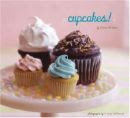I wouldn't describe myself as a script reader these days. Readers read two to three scripts per day. Now that I run a company that hires readers, I might read one or two scripts a week. And when I do, I really look forward to it. Oh for a quiet hour or so to sit with your script, turning the pages and getting lost in the world that you created. I get all comfy with some coffee or tea, turn down the radio and open the script.
I read a few pages. The phone rings. I ignore it and keep reading. My email chimes. Three times. I glance up to see what's up but return to the reading. The phone rings again; it's the director of the Attic Theater about tonight's table read - I gotta take it. After a 10 minute conversation, I return to your script - which page was I on? Oh, page 17, okay. I continue reading. Email keeps chiming. Oh shoot, that email has to be responded to right NOW. I jot off a quick reply. Now. Back to your script. What was happening? Where was I? And so on and so forth. There is no such thing as totally quiet, dedicated script reading time. It will get interrupted. And I'm just me - imagine an agent or manager reading your script. Multiply the phone calls and emails and knocks on the door by 1000.
But something strange happens when your script is engrossing. Suddenly, everything else around me goes quiet - I can't tear myself away from the pages. Yeah, yeah, I'll return that phone call but I just gotta see what happens, I'm just so swept up in these pages. Yesterday in the late afternoon that happened. I had to GO, I had a table read to host. But the script was really engaging me and I had to finish it. I kept glancing at the clock - gotta go - gotta go - but just two more pages. Just five more pages. Gotta finish this, gotta see how it ends...
On the other hand, and I'm sorry to say, this is the majority of the time, if your script is executed poorly - if I'm just not getting into the characters, if there are errors on the pages, if the storytelling itself is pedantic and unexciting, then the email chimes, phone calls and lunch dates suddenly become more pressing than your pages.
So Wavers, this is what you're up against. Because my situation is pretty normal. Even a script reader who does this as a full time job gets hungry for lunch, gets emails, phone calls and roommates poking their head in the door asking whose turn it is to vacuum. Nobody reads your script in a 100% ideal situation - i.e. uninterrupted, blissful silence.
So how can you overcome that fact? You need cinematic writing that moves. You need unforgettable characters. You need a premise that is unique and exciting. Those are the scripts that make the phone calls and other interruptions fade into the background. You can have whatever opinion you want about BALLS OUT, the Robotard Mystery Script, but it is, if nothing else, very engaging. It MOVES. It surprises, it offends and it makes you laugh. It is, in a word, engaging.
Engaging the reader. That's your job.
The first thing to overcome for you, the writer, is the difference between what engages YOU and what will engage and involve someone else. If you asked 10 writers whether their script is engaging, all 10 would say yes it is. Nobody ever tries to write a script that isn't. Right?
But the relationship between a writer and his or her script is inherently incestuous. You're too close to the material to imagine that it may not be as great to someone else as it is to you. You've read it and worked on it ad infinitum, so you have no perspective anymore. Is it entertaining? Well, sure, to YOU it is.
But is it really? Is it interruption proof? Will it make a professional reading your script ignore the ringing phone and be late for lunch?
That would make a great rating on the rating grid - engaging/entertaining/compelling. Fair, Good or Excellent. Maybe we should think about including that at The Script Department. Mama shall think that one over. But do you really want to hear the answer?
The most heartbreaking instance is when a script is executed just fine - no typos, clean action lines, a good page length - but the story is just, well, dull. It's fine. It's okay. It's just not that interesting.
Many of you may read scripts from time to time and you're thinking - hey! I stick to it! I don't get interrupted, my attention is held the whole time. Well, there's a wide gulf between you and a professional reader. For one thing, you are probably reading a professionally written and/or produced script in which the writer has a very high skill set. Or barring that, you're reading a script as a favor to someone and you're all amped up to do it. And another thing - you might read two or three scripts a month. Try reading two or three scripts a DAY and imagine then, that of the minimally 15 scripts you read in a week, that 13 made your eyes bleed.
Reading can sometimes be a real grind. Believe it. And your script enters into that grind as a new, fresh hope for that reader. Maybe THIS one will be a quick read. Maybe THIS one will crack me up or scare me or make me cry. Maybe THIS one will remind me how much I love good writing.
That's why readers get SO excited when your script rocks. Wow! One stood out! This writer changed my perspective, just a little bit. This writer entertained me, moved me and delighted me. God I love that feeling. It's the best feeling in the world. Well, you know, in the top 10.
Imagine this: You pick up a book and read a few pages. Not turning you on. You give it another few pages. Still not doing anything for you. You flip ahead. Eh. You look at the cover again. Meh. You read the author's bio on the back. Hmm. And you make the painful decision to put the book down. If you're a reader, you don't have that latitude. You MUST read the whole damn thing. And then write up your thoughts about it. If it was slow, unoriginal, laborious and filled with typos and mistakes, your coverage is going to reflect that without mercy.
So remember, after you've read all of your Save the Cats and Storys and Writing Great Character Blah-Blah books, after you've read The Rouge Wave everyday, the onus is still on you to write pages that engage and entertain. Your job is to write pages and tell a story that engages the reader. Your pages have to make the world go away.
There's no book that can tell you how to do that. It's called talent. And it's making sure that your premise - before you write the bloody script - is an interesting, original, entertaining one. Feedback helps. Being honest with yourself helps. So often newer writers can be very self-indulgent. How can the thinly veiled autobiographical story of how hard it was for you to find love when you were a student at UC San Diego not be TOTALLY exciting to someone else? Hint: It won't be.
Readers are jaded. J-a-d-e-d. We have already read every script known to man. The same stories are told over and over. What you think is totally original, to us is a script we read last week. Believe it. I know it's a very harsh truth. Your totally original sci-fi script? Yeah,I've read it before and it was better.
Awful awful awful, right? Well, it's the truth.
Get honest feedback from someone who either doesn't know you or someone willing to be 100% honest. So that rules out your mom, spouse and friends. Work HARD on hammering out a premise that is the same - but different. Dig down deep into the particularity of the world you are creating. Take the time to develop characters that really are unique. Write pages that move quickly and that are cinematic, colorful and entertaining.
Because the entertainment factor is everything. It is simply everything. And the golden pathway to that ineffable quality of engaging and entertaining is paved by everything above and then the one, magical ingredient that rules them all: VOICE.
How do you develop your voice? By writing. A lot. By letting go some and having fun on the pages. By being a little playful. By being unafraid to be uniquely you.
Generally, new writers go through several phases:
The first, horrible, awful two to three scripts: You have read all the books, taken all the classes and your writing is pedantic, tight and unoriginal. You get shut down immediately when you try to query or enter a competition. People smile thinly at you and encourage you to "keep trying!"
The mediocre three to four scripts after that: You don't have to refer to your Trottier book 18 times a day anymore to check on how to deal with structure. But your premises are not unique or entertaining. Your scripts are o-k-a-y but dull. You get shut down wherever you query. Your writing group encourages you but nobody really believes you have that "it" factor. You're a statistic: one of millions of aspiring screenwriters all over the world trying to break in and failing.
The mediocre and derivative couple of scripts after that: Now you're getting mad. What the hell?! Why is this not coming together?! You get shut down again. But you aren't quitting. WHERE is the golden premise that will enable you to write a great script? You've learned all there is to learn (you think), you write every day, your pages are pretty good but success still eludes you.
Then it happens. You say okay you know what? Screw it. I'm going to write this crazy story and I don't care what anyone says. I'm sick of this shit. I LOVE this story and I'm going to go nuts on it and my skill set is high but my temper is higher and I'm having fun on these pages. And that, Wavers, is the script that will break you into Hollywood.
But here's the rub: You CANNOT fast forward and write that great break-in script without going through writing several bad scripts first. It doesn't happen. Because you have to get good and frustrated first. And you HAVE to learn all that screenwriting craft stuff first. Oh, there are many who bleat - But what about Diablo Cody! She did it! And so can I! I'm just so talented! I deserve this! I need the money! I want the fame! Do not listen to the siren call of the Entitled Diva. It will dash you against the rocks.
You can't go around it, you can't go over it, you have to learn this lesson through experience.
So this script was kinda crappy. Fine. Start over and write another one. So that one was derivative and boring. FINE. Start over and write another one. And another. And another. One day you'll get good and mad - and determined - and you'll let loose. And that is the best feeling in the world for me, selfishly, because your script just made me miss my lunch date and three phone calls - and I don't care. Victory on the page!
If you enjoyed this post, follow me on Twitter or subscribe via RSS.

























